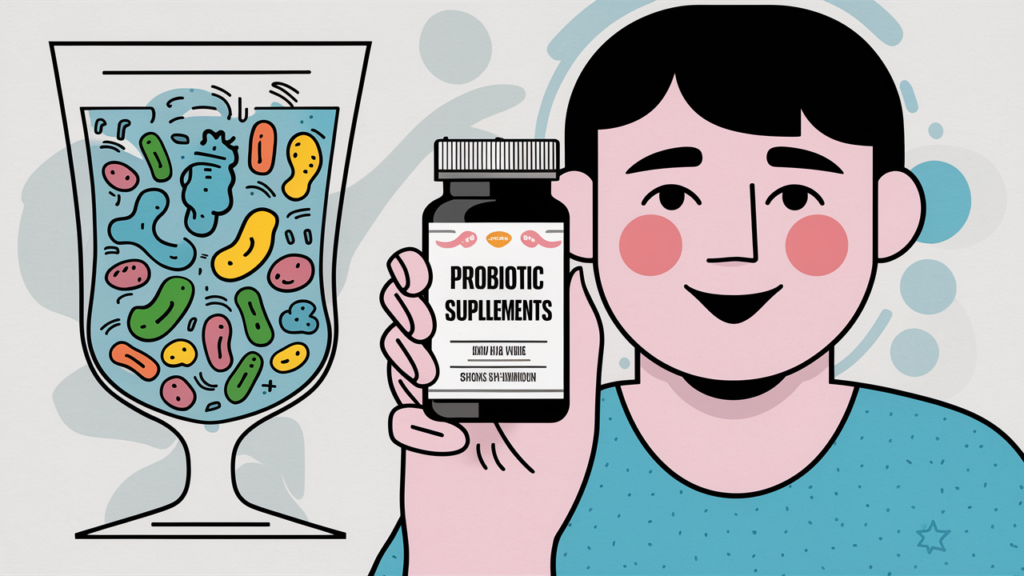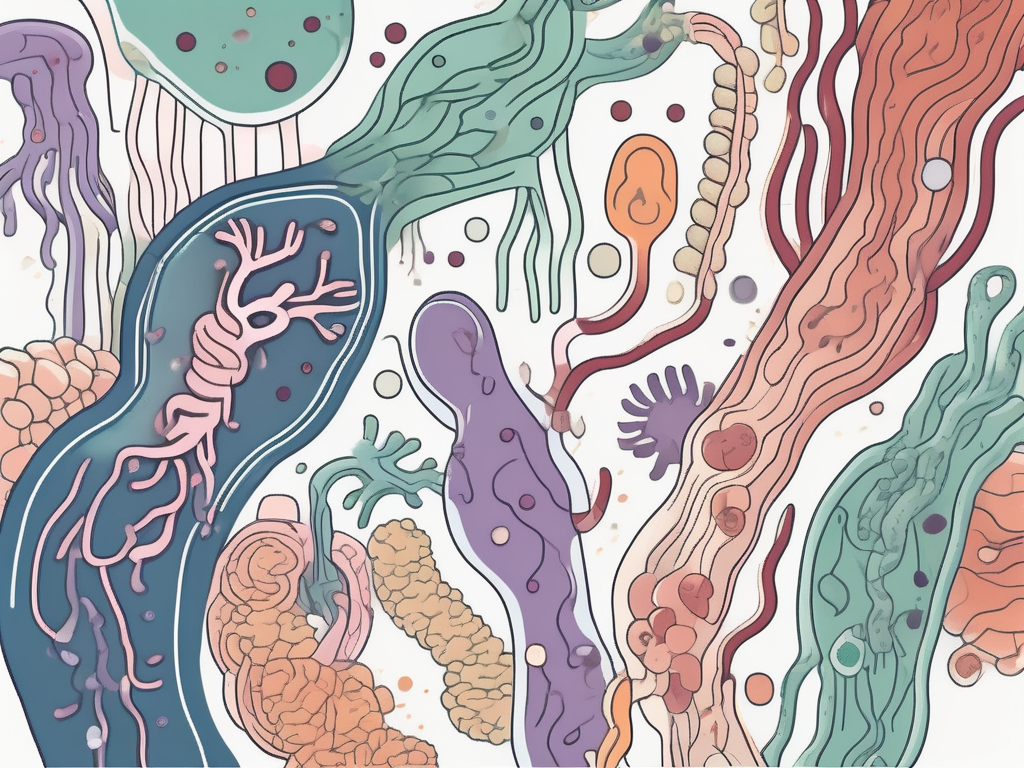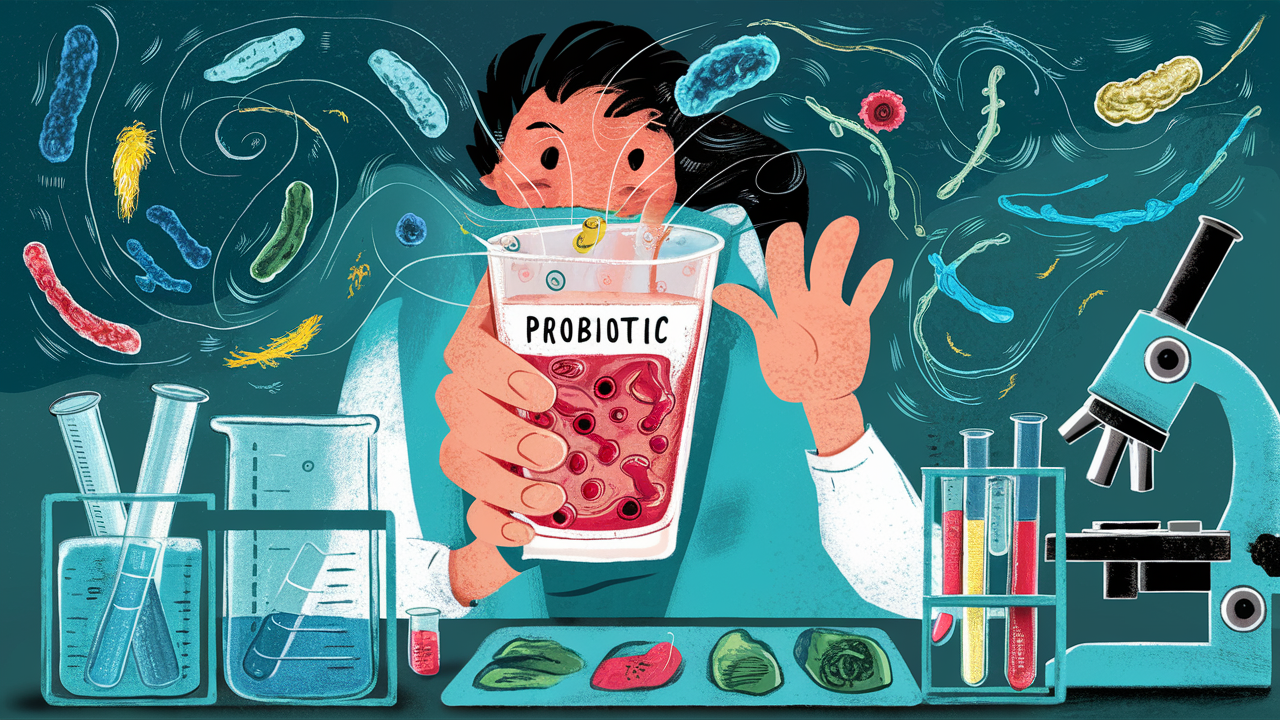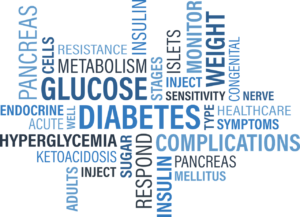Table of Contents
Introduction
Did you know that your gut is home to trillions of microscopic organisms, collectively known as the gut microbiome? This incredible ecosystem of bacteria, viruses, fungi, and other microbes plays a vital role in your overall health and well-being. Maintaining a balanced and diverse gut microbiome is essential, and prebiotics and probiotics work together as a dynamic duo to support gut health.
Our modern lifestyles, with ultra-processed foods, chronic stress, and frequent antibiotic use, can significantly impact our gut health.
An imbalance in the gut microbiome has been linked to various health issues, from digestive problems to autoimmune diseases and mental health conditions. It is important to nourish and support your friendly gut bacteria, and prebiotics and probiotics can help with that. They work together to promote a healthy, balanced gut microbiome, which is vital for overall wellness.
These two work together to nourish and support the delicate balance of our gut flora, unlocking a world of benefits that extend far beyond the digestive system.
In this article, you will find out about the fascinating world of prebiotics, probiotics, and postbiotics, exploring their individual roles, the synergistic benefits they offer, and how you can use their power to optimise your gut health and overall well-being.
A Recommended book “The Gut Stuff: The new gut-health and cookbook” 2024.
The Science Behind Prebiotics, Probiotics and Postbiotics
Scientific research has greatly contributed to our understanding of prebiotics, probiotics, and postbiotics and their impact on gut health. Numerous studies have shown the positive effects of prebiotics and probiotics on various aspects of digestive health, immune function, and overall well-being.
Prebiotics are non-digestible food ingredients that selectively stimulate the growth and/or activity of beneficial bacteria in the gut microbiome. The key aspects of the science behind prebiotics include:
- Selectivity: Prebiotics are selectively used by specific beneficial gut bacteria, such as Bifidobacterium and Lactobacillus, rather than the entire gut microbiome.
- Fermentation: Prebiotics are not digested in the upper digestive tract. They reach the colon, and there they undergo fermentation by the gut
microbiota . - Short-chain
fatty acid (SCFA) production: The fermentation of prebiotics produces SCFAs like butyrate, propionate, and acetate. These SCFAs have various beneficial effects on gut health and overall health. - Gut barrier function: SCFAs produced from prebiotic fermentation help nourish the gut
epithelial cells, increasing the thickness of the intestinal mucosa and improving nutrient absorption. - Anti-inflammatory and anti-carcinogenic effects: Butyrate, a key SCFA, has been shown to have anti-inflammatory and anti-carcinogenic properties.
- Mineral absorption: The acidic environment formed by SCFA production improves mineral absorption.
-
Pathogen inhibition: The acidic environment and SCFA production inhibit the growth of potentially harmful bacteria. - Potential Benefits for Mental Health: Prebiotics may have a positive impact on mental well-being, potentially by influencing the gut-brain axis and supporting the production of neurotransmitters.
In summary, the science behind prebiotics demonstrates their ability to selectively stimulate beneficial gut bacteria, leading to the production of metabolites that confer various health benefits to the host.
Probiotics are live microorganisms, usually bacteria or yeasts, that are beneficial to human health. Key aspects of the science behind probiotics include:
- Restoring Gut Balance and Diversity: Probiotics help restore the balance and diversity of the gut microbiome, which can be disrupted by factors such as an unhealthy diet, stress, and antibiotic use.
- Improving Digestive Health: Probiotics can help with different digestive problems like
irritable bowel syndrome (IBS ),inflammatory bowel disease (IBD ), andantibiotic-associated diarrh oea by enhancing gut function and decreasing inflammation. - Boosting the Immune System: Probiotics have been demonstrated to regulate the immune system, improving the body’s innate defences against pathogens and decreasing the likelihood of infections.
- Reducing Inflammation: Certain probiotic strains possess anti-inflammatory properties that can help alleviate symptoms associated with chronic inflammatory conditions.
- Supporting Skin Health: Probiotics could have a positive impact on skin health, potentially improving conditions like eczema, acne, and rosacea.
- Enhancing Mental Well-Being: Recent studies indicate that probiotics could positively impact mental health by affecting the gut-brain axis and promoting neurotransmitter production.
- Potential Benefits for Women’s Health: Probiotics might help maintain vaginal and
urinary tract health, and support women’s reproductive and hormonal health. - Improving
insulin sensitivity and blood sugar control in individuals withtype 2 diabetes .
In summary, the science of probiotics shows their ability to modulate the gut microbiome, inhibit pathogens, support the immune system, and produce beneficial metabolites, with strain-specific mechanisms contributing to their varied health effects.
Common Prebiotics
- Inulin: Inulin is a type of fructan found in various plant sources, such as chicory root, onions, and bananas. It has been shown to increase the population of beneficial gut bacteria, particularly Bifidobacteria, and may improve digestive function, enhance mineral absorption, and support weight management.
- Galacto-oligosaccharides (GOS): GOS are synthetic carbohydrates that mimic the structure of human milk oligosaccharides. They selectively promote the growth of Bifidobacteria and Lactobacilli, two of the most well-known and beneficial probiotic strains.
- Resistant Starch: This starch type resists digestion in the small intestine, reaching the large intestine unchanged. It serves as a prebiotic, feeding beneficial bacteria through the production of short-chain
fatty acids , essential for gut health. - Fructooligosaccharides (FOS): FOS are naturally occurring oligosaccharides found in various fruits, vegetables, and grains. They have been shown to increase the population of Bifidobacteria and Lactobacilli while also potentially improving mineral absorption and reducing the risk of certain chronic diseases.
The Different Types of Probiotic Strains
The world of probiotics is vast and diverse, with numerous strains and species offering unique benefits. Some of the most well-known and extensively studied probiotic strains include:
- Lactobacillus: This genus of bacteria is commonly found in fermented foods and is known for its ability to improve digestive health, boost the immune system, and support vaginal and urinary tract health.
- Bifidobacterium: Bifidobacteria are among the first colonisers of the infant gut and play a crucial role in maintaining a healthy gut microbiome throughout life. They are associated with improved digestion, immune function, and even cognitive function.
- Saccharomyces: Saccharomyces is a genus of yeast that includes the probiotic strain Saccharomyces boulardii, which has been shown to be effective in the treatment of diarrhoea, including that caused by Clostridioides difficile infections.
Streptococcus : While someStreptococcus species can be pathogenic, certain strains, such asStreptococcus thermophilus, are considered beneficial probiotics that can aid in the digestion oflactose and support overall gut health.
Probiotics can contain a variety of different strains of beneficial bacteria. Some of the commonly used strains in probiotic supplements include:
Lactobacillus acidophilus : This is one of the most well-known and extensively studied strains of beneficial bacteria. It is naturally found in the human gastrointestinal tract and supports digestive health.
- Bifidobacterium bifidum: This strain is also naturally found in the gut and is known for its ability to help maintain a healthy balance of bacteria in the intestinal tract.
Lactobacillus rhamnosus: This strain has been studied for its potential benefits in supporting immune function and digestive health. It is one of the most widely used strains in probiotic supplements.
- Bifidobacterium longum: This strain is known for its ability to support the health and function of the gastrointestinal system. It has also been studied for its potential immune-modulating properties.
Lactobacillus plantarum: This strain is known for its ability to survive in harsh environments, including the acidic conditions of the stomach. It has been studied for its potential benefits in supporting digestive health and immune function.Streptococcus thermophilus: This strain is commonly used in dairy-based probiotic products, such as yoghurt. It is known for its ability to help break downlactose , making it beneficial for individuals withlactose intolerance .- Saccharomyces boulardii (S. boulardii) is a beneficial yeast that is commonly used as a probiotic supplement. It supports the integrity of the intestinal lining, helps regulate immune responses, and may assist in the management of
diarrhoea , includingantibiotic-associated diarrhoea and certain types of infectiousdiarrhoea .
These are just a few examples of the many strains of bacteria that can be found in probiotic supplements. Different strains may have different properties and potential benefits. The specific strains and their concentrations can vary among different probiotic products, so it is important to read the product labels and consult with a healthcare professional for personalised recommendations based on your specific health needs.

The Synergy Between Prebiotics and Probiotics
The Power Couple: Prebiotics and Probiotics Together
Prebiotics and probiotics work together in a synergistic manner to support a healthy gut microbiome. When they are combined they are called symbiotics. Prebiotics act as the “food” for probiotics, nourishing and promoting the growth of these beneficial microorganisms. In turn, probiotics help to break down and ferment the prebiotic fibres, producing short-chain
Together, prebiotics and probiotics not only promote a balanced gut microbiome but also contribute to overall digestive health, immune function, and even mental well-being. They complement each other’s effects, creating a synergistic relationship that supports whole-body health.
Postbiotics
What are postbiotics?
Postbiotics and their metabolites have emerged as an exciting area of research in the field of gut health and overall well-being. While probiotics, the live beneficial bacteria, and prebiotics, the substances that nourish them, have been extensively studied, postbiotics offer a new frontier in understanding the intricate relationship between gut microbiota and human health.
Postbiotics refer to the bioactive compounds produced by the metabolic activities of probiotics and the host’s gut
Postbiotics are gaining recognition for their potential to confer various health benefits without the need for live bacteria, making them potentially more stable and easier to incorporate into functional foods and dietary supplements.
The importance of postbiotics lies in their ability to modulate various physiological processes, including immune function, metabolic regulation, and gut
One of the most extensively studied postbiotic metabolites is butyrate, a short-chain
Other postbiotic metabolites, such as indole derivatives and conjugate
CLAs, on the other hand, are bioactive
Efforts are being made to define postbiotics clearly and consistently to guide scientific research, product development, and regulatory oversight.
Research into the complex interplay between postbiotics, gut microbiota, and human health is expanding. The potential applications of these bioactive compounds in functional foods, supplements, and targeted therapies are expected to increase. The study of postbiotics and their metabolites is an exciting frontier in the quest to enhance gut health and overall well-being.
Prebiotic-Rich Foods
Incorporating prebiotic-rich foods into your diet is a simple and effective way to support your gut health. Some of the best sources of prebiotics include:
- Fruits: Green bananas, apples, peaches, grapefruit, berries, watermelon and citrus fruits
- Vegetables: Mushrooms, asparagus, green peas, cabbage, egg plant, onions, garlic, leeks, asparagus, chicory and Jerusalem artichokes
- Whole grains: Oats, barley, rye and whole wheat
- Legumes: Lentils, chickpeas, and beans
- Nuts and seeds: Almonds, cashews pistachios, flax seeds and chia seeds
Probiotic-Rich Foods
Fermented foods are excellent sources of probiotics, as they contain live and active cultures of beneficial bacteria. Some of the best probiotic-rich foods include:
Yoghurt and kefir
Sauerkraut and kimchi
Miso and tempeh
Kombucha and fermented tea
Pickled vegetables
Be careful of the sodium content of sauerkraut and pickled vegetables.
Prebiotics and Probiotics for Specific Health Conditions
Prebiotics and probiotics have been studied for their potential benefits in a wide range of health conditions, including:
- Gut Health Issues: Prebiotics and probiotics can be particularly helpful in managing conditions like irritable bowel syndrome (IBS), inflammatory bowel disease (IBD), and small intestinal bacterial overgrowth (SIBO) by restoring gut balance and reducing inflammation.
- Immune System Support: The gut microbiome plays a crucial role in the immune system, and prebiotics and probiotics can help boost the body’s natural defences against infections and illnesses.
- Skin Health: Probiotics may have a positive impact on skin conditions like
eczema ,acne , androsacea by reducing inflammation and modulating the immune response. - Mental Health and Cognitive Function: The gut-brain axis is a bidirectional communication system, and prebiotics and probiotics may have the potential to influence mood, cognitive function, and neurological health.
- Antibiotic-associated diarrhoea: Recommended strains: Lactobacillus rhamnosus GG, Saccharomyces boulardii, Lactobacillus acidophilus, and Bifidobacterium lactis
- Irritable Bowel Syndrome (IBS): Recommended strains: Bifidobacterium lactis, Lactobacillus rhamnosus GG, Bifidobacterium longum, and Lactobacillus plantarum
Inflammatory Bowel Diseases (IBD ), such asUlcerative Colitis andCrohn’s Disease : Recommended strains: VSL#3 (a mixture of several strains),Escherichia coli Nissle 1917,Lactobacillus rhamnosus GG, and Saccharomyces boulardiiTraveller’s diarrhoea: Recommended strains:Lactobacillus acidophilus , Bifidobacterium bifidum, and Saccharomyces boulardiiClostridium difficile infection : Recommended strains: Saccharomyces boulardii,Lactobacillus rhamnosus GG, andLactobacillus acidophilus - Mental health disorders:
- Probiotics may have beneficial effects on anxiety, depression, and stress through the gut-brain axis.
- Strains that have shown promising results include Lactobacillus helveticus, Bifidobacterium longum, and Lactobacillus rhamnosus.
- Neurodegenerative disorders:
- Probiotics may modulate inflammation and oxidative stress, which are implicated in neurodegenerative diseases like Alzheimer’s and Parkinson’s.
- Strains such as Lactobacillus plantarum, Lactobacillus acidophilus, and Bifidobacterium longum have been studied for their potential neuroprotective effects.

Gut Health and Overall Well-being
The gut microbiome is increasingly recognised as a key player in overall health and well-being. This intricate ecosystem of microorganisms not only influences digestive function but also impacts the immune system, mental health, and even physical performance.
The gut-brain axis refers to the bidirectional communication system between the gastrointestinal tract and the central nervous system. This complex network involves multiple pathways, including neural, endocrine, and immune pathways, which enable the gut and brain to influence each other’s functions.
Several mechanisms facilitate the gut-brain axis, such as:
- Neuronal pathways: The gut is innervated by the enteric nervous system (ENS), also known as the “second brain.” The ENS communicates with the central nervous system (CNS) through the vagus nerve, transmitting signals between the gut and the brain.
- Endocrine pathways: The gut produces and responds to various
hormones and signalling molecules, such asserotonin ,dopamine , andgamma-aminobutyric acid (GABA ), which can influence brain function and behaviour. - Immune pathways: The gut is home to a significant portion of the body’s immune system, and immune cells in the gut can communicate with the brain through cytokines and other inflammatory mediators.
- Gut
microbiota : The trillions of microorganisms residing in the gut, known as the gutmicrobiota , play a crucial role in the gut-brain axis. These microbes can produce neurotransmitters, short-chainfatty acids , and other metabolites that influence brain function and behaviour.
The gut-brain axis has been implicated in various physiological and pathological processes, including:
- Mood and behaviour: Alterations in the gut-brain axis have been linked to
mood disorders , such as depression and anxiety, as well as neurodevelopmental conditions likeautism spectrum disorder . - Stress response: The gut-brain axis is involved in the body’s response to stress, and chronic stress can dysregulate this communication system, leading to gastrointestinal symptoms and potential mental health consequences.
Neurodegenerative disorders : Evidence suggests that the gut-brain axis could play a role in the onset of conditions like Alzheimer’s and Parkinson’s, possibly linked to gut microbiota inflammation and dysbiosis.- Gastrointestinal disorders: Disruptions in the gut-brain axis have been implicated in various gastrointestinal conditions, such as irritable bowel syndrome (IBS), inflammatory bowel diseases (IBD), and functional gastrointestinal disorders.
The gut-brain axis is a complex and rapidly evolving field of research, offering insights into the intricate connections between the gut and brain and potential therapeutic targets for various neurological and gastrointestinal disorders.
By nourishing and supporting a healthy gut microbiome through the incorporation of prebiotics and probiotics, you can unlock a world of benefits that extend far beyond the digestive system. A thriving gut microbiome can enhance immune function, reduce inflammation, support mental well-being, and even improve physical fitness and athletic performance.
Ultimately, prioritising gut health through the strategic use of prebiotics and probiotics is a powerful way to optimise your overall health and well-being, setting the stage for a vibrant, energetic, and resilient life.
Probiotic Supplements: Do You Need Them?
While it is ideal to obtain prebiotics and probiotics from whole, nutrient-dense foods, there may be instances where probiotic supplements can be beneficial. For example, if you’ve recently taken a course of antibiotics, which can decimate the beneficial gut bacteria, a probiotic supplement can help replenish them. Individuals with certain health conditions or those who struggle to get enough probiotics from their diet may also benefit from supplementation.
It is recommended to take them for at least 12 weeks to see positive effects.
However, it is important to choose a high-quality probiotic supplement from a reputable brand and to consult with a healthcare professional, especially if you have an underlying medical condition. Not all probiotic strains and formulations are created equal, and your specific needs may vary.
Choosing the right prebiotic and probiotic supplements
Does the probiotic product provide an effective dose?
In the gut
.
Consider the delivery system. A probiotic must be able to tolerate exposure to stressors (e.g. thermal stress) during the manufacturing process and overcome barriers once administered (e.g.
gastric juices, intestinal fluids) to reach the large intestine (i.e., the site of action).
Does it provide the benefit you are seeking? Different probiotic strains have different functionalities and, thus, will offer different health benefits. Not all probiotics are created equal, and so it is advised to take a prescriptive approach when considering probiotic use for symptom management.
Choose a probiotic that has targeted your specific symptoms.
When it comes to choosing prebiotic and probiotic supplements, it is important to select high-quality products from reputable brands.
Look for supplements that contain specific strains of bacteria or types of fibres that have been clinically proven to provide health benefits.
Additionally, look for supplements that have been tested for safety and
Before starting any new supplement, it is always a good idea to consult with a healthcare professional, especially if you have any underlying health conditions, are pregnant, are breast feeding or are taking medications. Some of the potential risks and side effects of taking probiotics include:
- Digestive issues: When first starting probiotics, some people may experience temporary increases in gas,
bloating ,constipation , ordiarrhoea as the gut microbiome adjusts. These side effects usually subside within a few weeks. Allergic reactions : Probiotics may triggerallergic reactions in people withsensitivities to the ingredients used in probiotic supplements, such as dairy, eggs, or soy.- Infections: In rare cases, people with weakened immune systems, recent surgeries, or other serious health conditions may develop infections from the probiotic bacteria or yeast. This is more likely with certain strains, like Saccharomyces.
- Immune stimulation: Excessive immune stimulation in susceptible individuals is another theoretical risk of probiotics that has been described. Although probiotics are generally recognised as safe, if you are
immunocompromis ed (like if you havechemotherapy treatments, a critical illness, or you’ve recently had surgery), you should avoid taking probiotic supplements and probiotic foods. - Gene transfer: The potential for probiotics to transfer antibiotic resistance genes to other gut bacteria is a concern that requires further study.
Conclusion
In the world of gut health, prebiotics and probiotics are a dynamic duo that work together to create a balanced, thriving gut microbiome. Prebiotics feed and nourish the beneficial bacteria, while probiotics replenish and restore these friendly microbes.
By including a variety of prebiotic and probiotic-rich foods in your diet, such as onions, garlic, bananas, yoghurt, kefir, and fermented vegetables, you can unlock the full potential of this powerful partnership. Combine this with other gut-friendly lifestyle practices like eating a plant based diet, stress management, adequate sleep, hydration, and regular exercise, and you’ll be well on your way to cultivating a healthy, resilient gut microbiome.
Remember, a balanced gut is the foundation for overall well-being. So, why not start today by embracing the gut-boosting dynamic duo of prebiotics and probiotics? Your body will thank you for nurturing its inner ecosystem.
Prebiotics and probiotics are the dynamic duo of gut health, working in tandem to nourish and support the delicate balance of the gut microbiome. By understanding the unique roles and benefits of these two essential components, you can take proactive steps to improve your digestive function, boost your immune system, and enhance your overall well-being.
Whether you choose to incorporate prebiotic and probiotic-rich foods into your diet or opt for supplements, it is important to prioritise gut health. Remember to consult with a healthcare professional before starting any new supplements, especially if you have specific health concerns.
Take control of your gut health by harnessing the potential of prebiotics and probiotics. Your gut will thank you
This article is not intended to replace professional medical advice. If you have specific health concerns or conditions, consult with a healthcare professional for personalised guidance.
Disclaimer: The information provided in this article is for educational purposes only and should not be considered medical advice. Always consult with a healthcare professional before making any changes to your diet or lifestyle.



